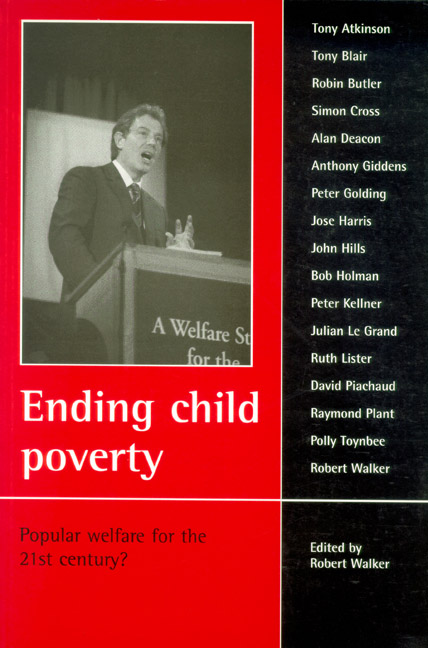15 - The new welfare
Published online by Cambridge University Press: 05 July 2022
Summary
Introduction
When William Beveridge published his famous Report in 1942, I was an evacuee. Eventually I returned home to the new welfare state Britain. It meant economic security for our family and it meant that I could be its first member to go to grammar school and university. I am grateful to Beveridge.
The new welfare
As a young man, Beveridge lived at Toynbee Hall and worked in the East End of London. Yet his Report said little about deprived areas. Its focus was on families and individuals, not neighbourhoods.
Today poverty is concentrated into 3,000 very deprived locations as identified by the Social Exclusion Unit. They are characterised by high unemployment, low incomes, poor health and drug abuse. I live in one of them, Easterhouse in Glasgow.
Yet not all is gloom. Within these same areas is a new form of welfare, one overlooked by Beveridge. I refer to neighbourhood groups or local community projects. These are activities which arise from within the areas not from outside. They are controlled by and run by residents. Examples are food co-ops, credit unions, youth clubs, community cafes, play schemes, second-hand furniture stores, community transport, and so on. According to the Community Development Foundation they have over two million participants.
Neighbourhood groups are significant for these reasons. First, they can modify the effects of poverty. They can sell cheap food, provide modestly priced holidays, ensure credit at low interest rates.
Second, they support families. Parents under stress can immediately turn to projects where they know and trust the staff. I am associated with a project call FARE (Family Action in Rogerfield and Easterhouse), which is based in five flats which became hard-to-let when drugs deaths occurred within them. Two of its 20-year-olds were asked on TV why they had not got into crime and drugs. They replied that the project had offered them clubs and sports as alternatives to gang life on the streets.
Third, they represent a new kind of welfare. It is not private welfare geared to making profit. It is not central government welfare which is often handicapped by bureaucracy. It is not local government welfare in which professionals from outside commute in to visit clients. Rather it is neighbourhood welfare in which staff and volunteers from the area serve their neighbours.
- Type
- Chapter
- Information
- Ending Child PovertyPopular Welfare for the 21st Century?, pp. 117 - 118Publisher: Bristol University PressPrint publication year: 1999



